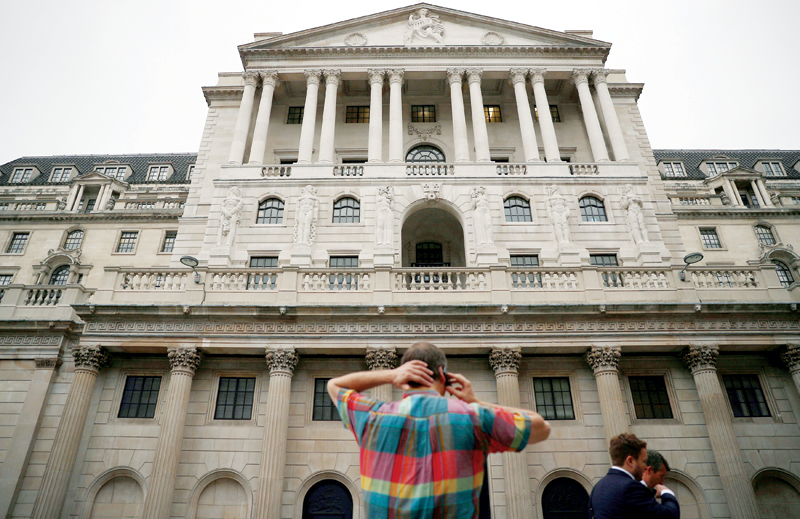

LONDON: The Bank of England said it was likely to raise interest rates in the coming months if the economy and price pressures keep growing, giving its clearest signal to date that Britain’s first rate hike in a decade is approaching. The BoE said its tolerance for above-target inflation was lessening even if Britain’s departure from the European Union remained a risk.
Data this week showed prices rising faster and unemployment falling to a four-decade low. Policymakers voted 7-2 on Thursday to keep rates on hold at a record-low 0.25 per cent, as expected. But the new guidance from the BoE pushed sterling to a one-year high against the US dollar.
Investors priced in a more than 50 per cent chance of a rate hike before the year’s end. The BoE said the economy now looked closer to running at full capacity as employment rose and wages picked up, boosting inflation pressures. If this continued, most of its policymakers felt “some withdrawal of monetary stimulus was likely to be appropriate over the coming months,” it said.
Governor Mark Carney said he was among the BoE rate-setters who felt the balance of risks for the economy was shifting away from a Brexit slowdown and towards rising inflation, meaning the chance of a rate hike had “definitely increased”. “I would describe (a rate hike in) November as being live,” Nomura economist George Buckley said.
Other economists said they still thought the BoE was in no hurry, given the slowdown in Britain’s economy this year and the doubts about what leaving the EU in 2019 will mean. “We see this as an attempt to shake markets out of their complacency after the failure of previous, subtler, attempts,” Andrew Goodwin, an economist at Oxford Economics, said.
The Brexit vote has put the BoE in a dilemma. On the one hand, it wants to support the economy through its EU divorce, leaving it behind other central banks raising interest rates such as the US Federal Reserve. But at the same time, it needs to keep a grip on inflation which rose sharply after the Brexit vote weakened the pound. — Reuters
Oman Observer is now on the WhatsApp channel. Click here



